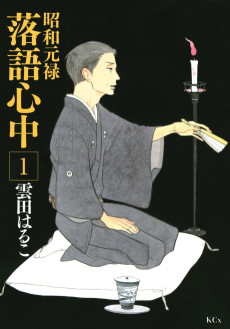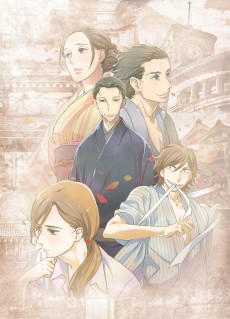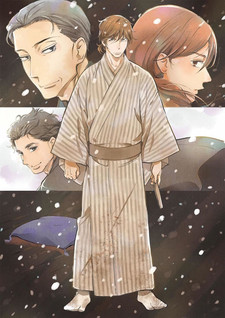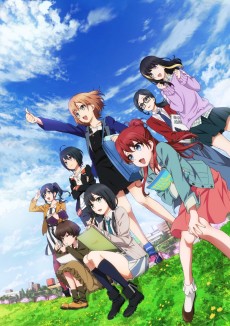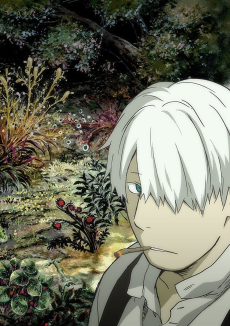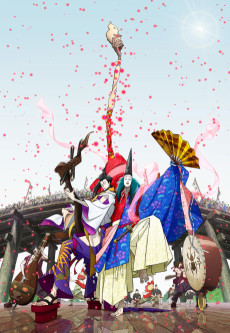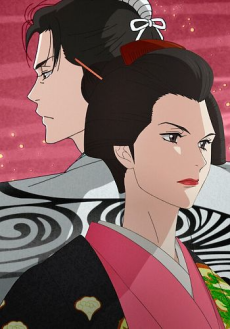SHOUWA GENROKU RAKUGO SHINJUU: SUKEROKU FUTATABI-HEN
STATUS
COMPLETE
EPISODES
12
RELEASE
March 25, 2017
LENGTH
24 min
DESCRIPTION
Unable to forget a performance of "Shinigami" performed by the rakugo master Yakumo in the prison where he was being held, Yotaro's first act upon his release was go right to the theater, where he begged, pleaded, and was finally accepted as Yakumo's live-in apprentice. After years of refining his art, Yotaro was promoted to the rank of Shinuchi and inherited the title of 3rd Generation Sukeroku. For the sake of his master Yakumo, Konatsu, and to change the image of Sukeroku inside them both, what kind of rakugo will Yotaro discover?
This celebrated human drama, based on a story by Haruko Kumota, offers an honest and sympathetic look into the lives and livelihoods of rakugo storytellers in the Showa era.
(Source: Crunchyroll)
CAST
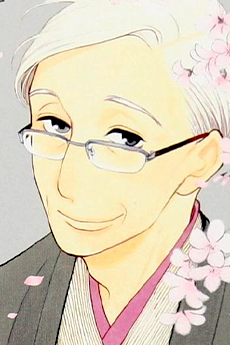
Yakumo Yuurakutei
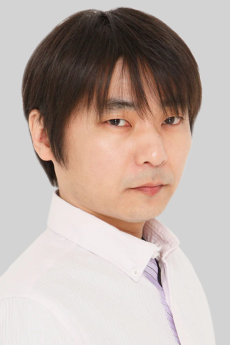
Akira Ishida
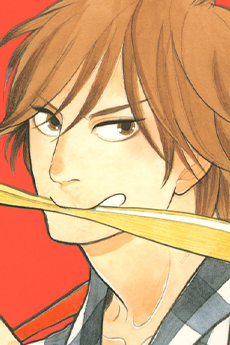
Yotarou
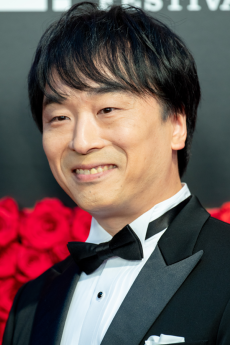
Tomokazu Seki
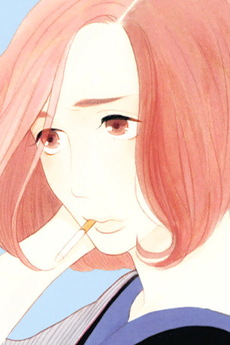
Konatsu
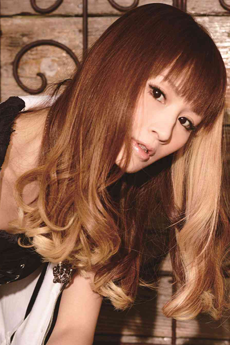
Yuu Kobayashi
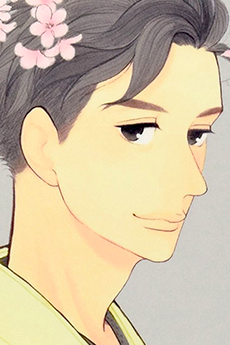
Sukeroku Yuurakutei
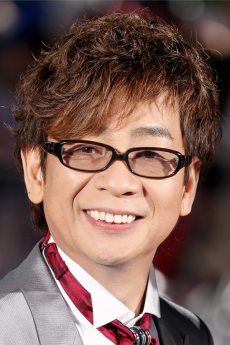
Kouichi Yamadera
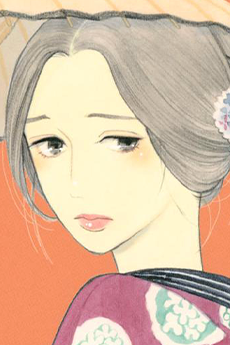
Miyokichi
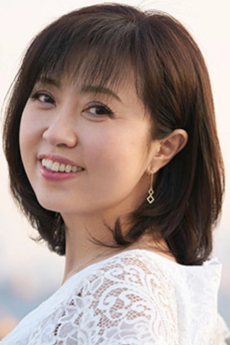
Megumi Hayashibara
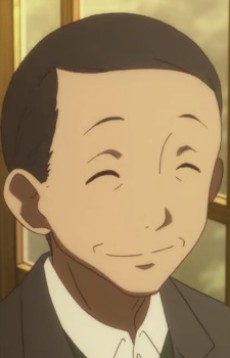
Matsuda
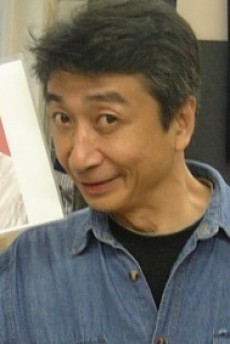
Shigeru Ushiyama
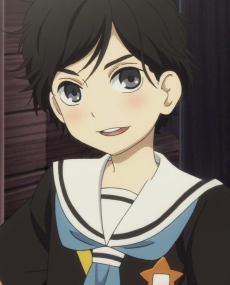
Shinnosuke
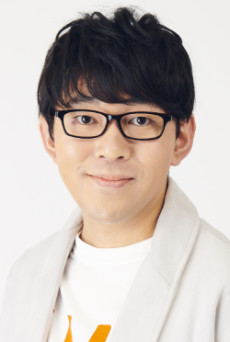
Yuuki Ono
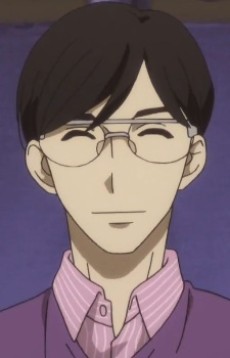
Mangetsu Tsuburaya
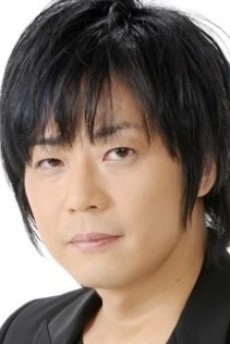
Kouji Yusa
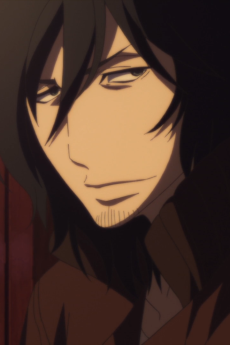
Yakuza Aniki
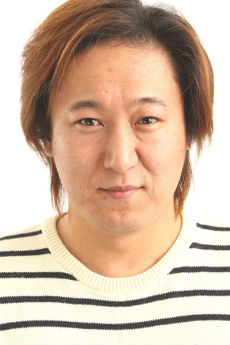
Yasuyuki Kase
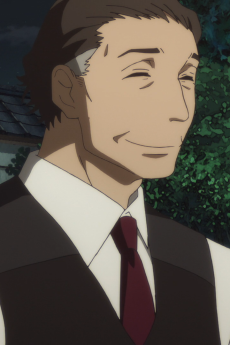
Oyabun
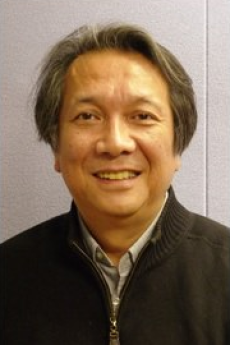
Takaya Hashi
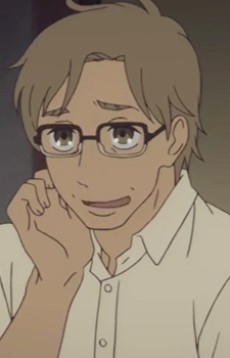
Eisuke Higuchi
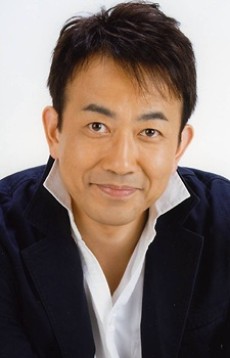
Toshihiko Seki
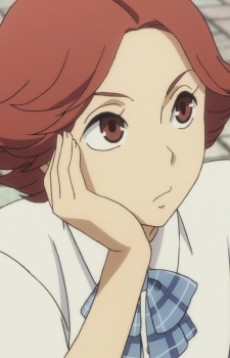
Koyuki
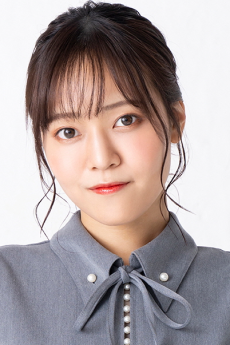
Ayaka Asai
EPISODES
Dubbed
RELATED TO SHOUWA GENROKU RAKUGO SHINJUU: SUKEROKU FUTATABI-HEN
REVIEWS

beanwolf
95/100A gripping and serious historical character drama with enough heart to easily bring you to tears. A modern masterpiece.Continue on AniListIf you would have told me even two years ago that Studio DEEN would be producing two of the most high quality and well loved shows of the year, two years in a row, I would have told you that you were completely insane and should probably be committed to a psychiatric ward. Despite that previous aversion to the studio, I can firmly say that Rakugo's second season is my AOTS by multitudes of miles, and that the series as a whole is probably one of the best anime to air in the past decade. Just like in the first season, this series just oozes quality from every seam. The art and character designs are muted, but detailed and expressive. The music is a mixture of lovingly performed traditional Japanese music and re-imagined period pieces with a focus on both upbeat and atmospheric jazz. The VA is notably superb, as it should be in a series that focuses a Japanese art of spoken performance. Even as someone who does not understand the language, the emotion and feeling just flows off every word during both the in-show performances and normal dialogue. DEEN stepped up to the plate with the fruits of its recent successes and delivered an extremely polished finished product. And this is just me praising the series' aesthetic qualities, which albeit great cannot hold a candle to the stories that Rakugo has to tell.
Rakugo is first and foremost a character-driven drama with quite a story to tell, and an anime second. This is incredibly refreshing in a medium so overfilled with "moe-blobness" and bereft of mature plots and characters, and reminds us just how effective animation can be when it decides to take itself seriously. With that in mind, this series is just as much about the art of rakugo performance as it is a story about our characters and their relationships both with and around it. It is hard to discuss anything about the specifics of the series without spoiling the experience, but believe me when I say that these characters are some of the most believable and engaging in recent memory, and getting to watch them grow up, accomplish their goals, and deal with all of life's challenges is a treat to watch unfold. In fact, if there was only one thing that I could praise Rakugo for, it would be its narrative breadth: across two seasons and eight decades we get to watch the evolution of the art of rakugo over three whole generations of familial performers. Despite this amount of pure content, nothing in Rakugo seems out of place, with character actions and specific plot events being as relevant from S1.E01 to S2.E12 as it is from episode to episode.
I don't think I'd hesitate to recommend this series to even those who don't like or watch anime, which is something that I typically wouldn't do for a series that I don't rate a 10/10. As a complete 24 episode package, I think that Rakugo very closely approaches this score with only a few reservations, but when split cleanly in two some issues arise with pacing out of the first season and into the "Descending Stories". The series makes very liberal use of time jumps, and although they are lovingly crafted and well-executed, I know that they will undoubtedly anger some just from their nature. With such an incredible length of time covered, Rakugo opts to cover the most important and influential moments in our characters' (and rakugo's) lives, and the jumps in characterization, or sometimes the deliberate lack thereof, can be a bit of a mental leap at points. Rakugo above all else never opts to insult your intelligence with needless exposition, so careful examination of what happens on screen is going to be required. This is a mature series, and it expects its viewers to approach it with the same maturity that it provides.
In the end, I think the biggest shame with Rakugo is that it's effectively un-localize-able. It deals directly with specifically Japanese cultural content that would lose nearly all of its meaning in translation. One of the series' greatest strengths is bringing the viewer to both appreciate and understand the art of rakugo performance and its traditions, but nearly all of this would be lost if all of the many rakugo stories were performed in English. This is not so much an issue with actual lingual translation but rather the voice actors' specific performances and the emotional weight and subtext that they carry. I want nothing more than to be able to recommend this series to non-anime watchers as an example of a modern, compelling example of the medium that isn't about giant robots or cute girls, but the sheer necessity of watching the subtitled version will immediately cause people to ignore the recommendation. Maybe I'm wrong, but I doubt even the most talented team of American localize-rs and voice actors will be able to do this series justice.
If you haven't seen this series yet, go watch both whole seasons now. You won't be in the least bit disappointed.

CodeBlazeFate
96/100This wonderful work of art deserves more attention than it has gotten, and all of the praise it can get.Continue on AniListNostalgia is a powerful thing. Happiness is essential, for when death comes, we want to look back fondly at our lives. It's only natural, really. It's only natural that we feel this way, and it's only natural that this is the conclusion to such a wonderful work of art. With that sentimental tangent, back on track, though expect that to be the tone of this review. Death, or rather, actually dying and no longer being able to experience anything for all of eternity is something that legitimately frightens me, and it has since childhood. Leaving a legacy that you won't see, possibly not even knowing what kind of legacy you leave or if you leave one at all. All of this has toiled in my mind for quite some time now, and this second season really sparked that back into my psyche, for better and for worse. Since, it's been a struggle to keep myself from getting horrified by the unknown of it all, since it was inevitable that this would be a recurring thought in my head. Then again, it might've started before then; I'm not sure. All I know is that I am glad to have been alive to see this masterpiece.
This review assumes that you have seen both seasons of Showa Genroku Rakugo Shinjuu. If that is not the case, leave, watch both seasons (or if you've seen season 1, continue on), and head right back. I will spoil both seasons for the bulk of this review
Showa Genroku Rakugo Shinjuu is an impeccable tale about two young men’s careers and how their ways of dealing with their passions for their beloved art form affected the lives of themselves and others. It serves as a prequel to the events of this season, and are filled with such foreshadowing through the symbolic Rakugo performances that their effects can still be felt in this second season, but I'll get there.
The sequel, Sukeroku Futatabi-hen, is a masterful tale of an apprentice surpassing his master while not only trying to not only carry the art in which he promised and now is challenged to protect, but also learning even more of just what happened before while his master comes to terms with everything, from his past to his legacy. Well, that's only at the start, since there are new things added in each episode that make each one vibrant, dramatic, and thrilling. The follow-up to the undisputed best anime of 2016, is every bit as rich as its predecessor and then some. With that said, let’s alter my usual segue, and jump right in, shall we?
We begin with this hilarious meta performance by Yotarou, aka the 3rd Generation Sukeroku, telling us that it has been a year since the last season and that he had been putting his head to his feet in anticipation of telling us the second season’s events since the beginning of the Spring 2016 anime season, which is gold. Not to mention how the directing encapsulates his disorientation from that whole wait. With this, we begin the series on a hilarious, upbeat, and creative note, which is fitting for this masterpiece.
The anime wastes no time in revealing the symbolism behind Yakumo frequently telling the story “Shinigami” in season 2, as we learn that Yakumo insists on haunt Rakugo die with him, saying this directly to Yotarou, effectively challenging him to fulfill the promise he made to him 10 years ago about keeping the art alive even after the master’s death, hence what I just alluded to literally 2 paragraphs ago.
After a delightful and magnificent first episode, the second episode really delves into showing how the media is a bunch of snakes that will use Yotarou’s past against him, especially Amaken, the fucking prick. We get to see how certain upstart audience members will insult Yotarou and anyone who likes his work, sort of like an accidental allegory for an elitist punk that mocks us for liking a show we genuinely like. We get to see just how badly this affects him as he makes his first bombing performance, and everything really crumbles for him. At the same time, Eisuke (who met up with him in episode 1 and piqued his interest about Sukeroku) talks with Yakumo, wanting to know everything about the past of Rakugo, the masters, and, even Miyokichi for some reason.
Her name comes up a lot, and it disturbs Yakumo and especially Konatsu, for we know what she did in season 1 and how Konatsu felt about her; her awful, love-deprived mother. Miyokichi’s negative impact is lasting, which is akin to how in real life, someone can leave a negative impact on so many people’s lives even after he/she is gone, to the point of using that person as negative comparison and contrast. Not only that but, as I said, the whole gang thing becomes notably relevant as well at around the same time.
Each episode brings something crazy and new to the table, which is not what I expected. I mean, this show brings a lot of originality to the table, but I didn't expect it to start delving into some of the stuff it did with each new episode adding a new subject to the pile that relates to the characters’ personal lives. From the yakuza stuff, to Miyokichi, to a time skip where we get to see the new Shinnosuke that was born from Konatsu, to the lovely performance Konatsu gives to and with the kindergarteners, and even more amounts of great moments and revelations, this show never gets old. It's a treat to see just what amazing new thing will pop up, much like opening a bunch of presents on Christmas or your birthday.
While, yes, the amount of time skips is potentially bothersome, even to me, the show never dwells at all on these time skips and it just wants us to have a reasonable gage on them, particularly with the second one, as they later spell out the first one. It's not like the time skipped was even necessary or something that would really flesh out the characters or develop either the characters or the plot. It would be nice to know more or if they resolved the gang issue from episodes 2 and 3 thoroughly, but they would merely be interfering with things if that were heavily included. Some people will complain about the lack of symbolism or foreshadowing behind the Rakugo performances this time around, but that's because the ones in season 1 were meant to do what season 1 was all about: foreshadowing, since it is effectively a prequel to the present day story, with season 2 being that story that is really about bringing everything from the past to light and to a close, which is why this doesn't bother me much.
The Inokori performance that was hyped up for episodes 3, 4, and 5, was entertaining like the rest of them, but ultimately, the crux of episode 6 was how the final moment of episode 5 jacked up his health, part of that moment involved him seeing a hallucination of Miyokichi before being part of a hallucination of Sukeroku shoving him down for unknown reasons in a room full of candles. This leads into the fact that he hasn't truly forgotten about either of the two, and it also leads into the big truth: Yakumo lied to us. Not only to us but to Konatsu and Yotarou.
Specifically, he lied about the circumstances of Moyokichi’s and Sukeroku’s deaths, or, as they are known by real name, Yurie and Shin. In reality, due to an emotional outburst, Yurie stabbed Shin and panicked, but the wound wasn't horrible. Konatsu came into the room and thought Bon (Yakumo) did it but Yurie told her that she was the one who did it, only for her to hit Yurie and push her out of the room in an emotional outburst which prompted Shin to reach out to save her only to die with her. Since then, he let it seem as if he did it in an act of permanent guilt, especially since her memories contorted around the fabricated idea that he was the one who did it. This moment was insane, not just due to it being a harsh and dramatic circumstance happening so fast, as life tends to do with moments like this, but mainly because it showed that part from season 1, from Yakumo’s story to be a lie, which was an interesting and epic thing to do.
One failed suicide attempt later, and Yakumo gets to see Yotarou perform one of his old colleague, Sukeroku’s most famous works, and after his daughter is so moved and the finally gets the chance to perform, the gang boss, Kido Isao is arrested and Yakumo gives a performance surprisingly relatable to him. Then, after being disappointed by Yota’s performance, he does Shinigami, only to see Sukeroku and nearly die in a fire; a truly harrowing and tense scene, in no small thanks to the directing. With the sheer impact of that flame, we eventually get more news: Konatsu is pregnant once again. After that, we learn even more of what Yakumo did for her, and after a nice performance by Yota and some unnecessarily adorable backup by Shinnosuke, it seems like Yakumo is finally dead.
The afterlife is very interesting there. It's a more vibrant and more poetic version than real life, and is a truly lively take on the afterlife, though nothing can beat the “Land of the Remembered” from Book of Life. It's a beautiful thing to see our trio reunite, and even more precious to not only see our two original leads perform Rakugo once again, but to do it with Konatsu and Shinnosuke by their side for a bit. Sure, this raises questions, but we, like Yakumo, can't really be allowed to truly understand this afterlife. It's also a shame that Matsuda died as well, but at least he sees his master off in a beautiful river in a breathtaking ending sequence that leads to a golden new frontier that is just...heavenly…
The finale is one of the most peaceful, loving, and nostalgic finales in existence. We get to see Shinnosuke and the new child Koyuki, and they're pretty nice, and do really take after their role-models, Yakumo and Yotarou respectively. It's nostalgic to see how everyone we are left with to care about has aged, and the Rakugo performances of Shinnosuke and Yotarou are really nice, with the added bonus of Yotarou going what Yakumo went through earlier in the season with seeing someone he cares about being the Shinigami. The final scene really sells the nostalgia everyone has at this point and made me both nostalgic and teary-eyed.
You never know what to expect with this show, and it's rare that we can say that in a positive manner. It's told impeccably, and it keeps things exciting with rest new twists and turns around every corner. Honestly, the finale was perfect, and the road leading up to it was beyond stellar.
Yotarou is the same as ever, even with the 10-year gap between the beginning of season one and the beginning of this season, but he has still grown in terms of a performer and a student. Still brash, outlandish, loud, goofy, and earnest, this loveable fool, and, just like with some of his audience members, he will always be Yotaro to me. Plus, he makes a great dad and a really good partner to Konatsu, like in episode 4 when he got her to perform in front of her son and his class, or when in episode 7, he still decided to shield her from the truth about the Sukeroku death incident despite it taking an emotional toll over him and the fact that he now knows the truth. He’s a real treat to get to listen to, even when he becomes old.
Bon, our old master from the beginning of the series and our interesting young lad from the entirety of season 1, is still as strict, stingy, and as much of an ass as before, but with more of a reluctant tendency to just let his two younger ones (Konatsu and Yotarou). After all, he’s gonna die soon, not them, they still have full lives to live. It's also interesting that he actually wanted Konatsu to kill him all this time like she said she would, but it not only disappointed that she hadn't but is not disappointed that the only reason she keeps him alive now is that her baby likes his rakugo. Worst of all, he doesn't enjoy doing it anymore, as it relates to his guilt of Sukeroku’s death, which we learn wasn't even his fault. He continues to lie about the situation to make himself as guilty to Konatsu as possible, since, as I stated in my season 1 review, he feels genuinely horrible about this whole thing, and all of this affected his art and his view on everything. Putting everything into perspective with the ultimate twist, which I have to commend this show for, since I hate the Unreliable Narrator, yet this show used that in order to allow us to have a thrilling prequel that sets up such context for the truth of it.
Konatsu is as stubborn, angry, and hot-headed as ever, even after knowing the truth about everything and finally raising a kid. Even still, she is still very likable and a worthwhile partner for Yotarou. Still, there is a good reason, since she’s been that way pretty much all her life, starting from the moment she effectively killed her mother and contorted the memories of that event to Yotarou comforting her. It's pretty tragic, honestly, since she really hasn't grown out of that angry, overly emotional, and vengeful state, at least until motherhood in which she is still somber, but at least she mellows out in old age.
Even other characters like Matsuda, Eisuke, Mangetsu, and Yotarou’s former boss, who play mostly minor roles here with one exception (all 4 of which also played minor roles previously, like Eisuke being that one man that was rejected by Yakumo near the end of season 1) remain or become really fun and likeable, and that's a treat in its own right. The only exception is the intentionally awful cunt known as Amaken, a total SOB who actively ruins Yotarou’s gig by rubbing his past in his face and acting like an asshole during Yotarou’s performance.
Other more minor characters like Kido Isao and the geisha from season 1 are still rather good people, like, for example, the boss man (Kido) himself being charismatic and understanding, fascinated by rakugo, and not afraid to stand up for women, as shown when he throws Yotarou into rocky water for making Konatsu nervous for him due to his impudence, or remind us that he is still the boss and that he exerts massive authority. I also like Shinnosuke, the grandson of Sukeroku (who was also named Shin) for being such an adorable kid who happens to be a really nice boy, making me want him to grow up to be an amazing lad, as odd as it sounds given that he is merely an anime character. Turns out, both he and Koyuki were great as teenagers as well, and their dynamic is fun.
Honestly, as cheesy as it is for me to feel this easy about characters in fiction, I really feel like I know the whole family of these guys as a friend who somehow got to see everything they went through that really contributed to this story. I don't think any anime has been able to do that for me, and I'm sure many of you feel the same way. It's damn impressive for an anime to be capable of doing such a thing, and I adore this anime for it.
Studio DEEN is not known for having high-quality art. Rather it is known for the CGI Dragon, and the way it mishandled the Fate series. Even still, the art here is as impressive as ever, with great backgrounds and lively Rakugo performances to boot. Plus, if you thought the directing in season 1 was phenomenal, prepare to have your mind blown by the amazing moments of shot composition, lighting, and framing that shine amongst the best moments of season 1 and then some. Even with the occasional moments of bad CGI or the lack of notable fluidity overall, are unable to really bog down this series too much for its phenomenal directing and great art. Director Hidetoshi Namura did an excellent job with both seasons, and he deserves said credit as the animation director, and Studio DEEN deserves major credit for their work here.
The anime wastes no time showing us some new songs for the overall OST, which is admirable, as a sequel should always bring in some new music to mingle with the old. Each track is as lively as ever and there are even more great jazz compositions to spare. They are, once again, placed incredibly in the perfect scenes, such as the song for the final moment of episode 1.
The OP, “Imawa no Shinigami” by Megumi Hayashibara is both chilling and emotional, and with some of the best directing an OP can have, to the point that even the name carries meaning about one of the integral plot points of the show: Shinigami. Even outside of the masterful directing which is worth it's own video by someone who can break it down in perfect detail, it is still a wonderful song to listen to, starting off in a very chilling and somber tune with clocks ticking before Yakumo walks and then falls off a cliff, then it ramping up in an emotional flurry of him falling, to a slow emotional and chilling buildup from when he and Yotarou meet again and he purposely sinks back in and we see the death bell chime and a giant record-player stitching between different records of the different points of Miyokichi’s life, all the way to a true emotional payoff of everyone being there for him, including Sukeroku, who opens him up and brings the OP to a close, with the light already being out…
The ED, “Hikobayuru” by Kana Shibue is also a very nice and relaxing jazz piece that takes us on a magical journey. We get to see many amazing landscapes and environments within the whimsical ED, and it's honestly a treat. While it is certainly not as amazing as the OP, it is still nice to listen to, and it even beats the first season’s OP much in the same vein as with the OPs.
No matter what, Rakugo has never had an episode that didn't make me feel at least engaged and thoroughly entertained, with this season being no exception. The Rakugo performances, namely the ones played in full, are still quite a fun time, and I loved each episode. The scene in episode 1 with the duet of Yotarou and the geisha, the opening scene in episode 4 with Shin reciting Jugemu while walking, and the performance Konatsu gave with and in front of both Shin and the rest of the kindergarteners in episode 4, are some of the most endearing moments I've ever seen in an anime, with the latter moment also being one of the most heartwarming, thanks in no small part to the brilliant directing that really played up all of the emotions we were meant to be feeling. The stellar directing wowed me constantly, and the drama felt earned and properly done. I rarely found anything that even remotely made me not have a big grin on my face, which is a rarity, even among my favorites.
I know that I’ve basically been gushing this whole time and have provided only the most minor of criticisms, but it’s because it was so damn good that I hardly found much wrong with it. Besides, the finale and penultimate episodes were just magical and full of wonder and nostalgia. I can't believe I have to get nostalgic as a teenager of all things, but hey, this anime is that powerful. Imagine when I watch this as an older man; suddenly I will cry my eyes out at the relatability. But that's a long, long time away from now. With that, onward to the conclusion of our journey, as we celebrate this final, glamorous performance.
It seems almost ludicrous that this anime would be my first 10. It's crazy to think that this will only get better as I get older. This anime is a wonderful and poignant masterpiece and a lovely conclusion to one of the best anime of the new century. Art is the perfect way to describe this show, as it really explores and encapsulates both the effects and emotions of art. Nonetheless, it has come to a glorious end, and like the characters at the end of the series, we can look back fondly at all that happened here. Honestly, it's a pity that I've basically run out of things to say and that there are people who can and will do this show more justice than I ever could, for this wonderful work of art deserves more attention than it has gotten, and all of the praise it can get. Well, with that said, I bid you adieu.

PlatinuMan
55/100Though Season 2 of Rakugo has interesting ideas, it remains ultimately weaker to the show’s first seasonContinue on AniListRakugo was certainly an interesting show when it debuted in 2016. A historical fiction piece about characters loving the art of acting certainly didn’t seem like it would grab an audience, but it quickly became a highly beloved title. One aspect about the show that was undercut was what was happening in the show’s present. Season 1 was mostly focused on the past, so it didn’t really get a whole lot of time to show off the current story and characters. Of course, as Yotaro says at the end of Season 1, the story was far from over and the second act to the “play” was revealed the following year. Season 2 continues the story of rakugo, offering new concepts and ideas wrapped in a bittersweet delivery. Though many have found favor with the season, placing it as equal or greater value judging by the averages, I would have to disagree. Unfortunately, the season simply cannot compare to what its predecessor laid out.
At the end of Season 1 of SGRS, we see Yotaro become a shin’uchi among other important details, such as Yakumo becoming the president of the Rakugo Association and Konatsu announcing her pregnancy. The story starts off from this point in Season 2, refamiliarizing the viewer with the setting while introducing more characters into the central cast. Eisuke Higuchi, who asked to become Yakumo’s apprentice in the first season, has now become a writer and is obsessed with all things of the world of rakugo. Mangestu Tsuburaya serves as a struggling performer and comrade to Yotaro. Konatsu’s child, Shinnosuke, is a bright-eyed boy who becomes enamored with the world of rakugo, naturally as a result of the passion that Yotaro and Konatsu has. The addition of other characters certainly gives credence to that rakugo still strikes the heart of its audience and are important for a few plot points (such as Higuchi’s rakugo research), but they also contribute to a few problems discussed later. For the most part, the story is centered on Yakumo and Yotaro. Having grown older and experiencing the loss of Miyukichi and Sukeroku, Yakumo has become quite forlorn and grows more spiteful of the art he practices. In contrast, Yotaro is a goofier Sukeroku, having a more extroverted nature and playing up to his stage name of being “a fool”. However, he still carries great compassion for others and carries out what he feels is right, such as in the case of being a foster father to Konatsu’s child. Though I feel he does not carry the same charisma that made Sukeroku so enamored, he still serves as a great foil to Yakumo and Konatsu.
As the opening to Season 2 plays, the first thought that entered my mind is that this would be the more melancholy of the two seasons. As if opening theme Imawa no Shinigami’s stop-start instrumentation and lyricism didn’t give it away, the OP is filled with grief. Starting with the characters facing the camera frowning (with the exception of Shinnosuke), it focuses on Yakumo in a number of sad ways, such as rejecting the assistance of others, falling off a cliff in suicide, and having Sukeroku’s ghost reveal the lack of heart/spirit underneath Yakumo’s robe. What’s more, the theme of the passing of time has been carried over to this season. As Yakumo grows older, it becomes more difficult to perform the art he loves and the memories of Miyukichi and Sukeroku still haunt him. Interlaced with this are plot twists and developments that reveal truths to previously known events. Though this is one of the main pulls to Season 2’s story, not every episode or moment is downcast. Though Yakumo delves deeper into his personal despair, Yotaro experiences many wonders as a new shin’uchi, hosting a television show and radio show where he performs his rakugo. Yotaro does face some conflicts of his own, but his side of the story ultimately is a contrast to Yakumo’s. As Yakumo’s story begins to close, Yotaro’s story blossoms with his growing family, friends and rakugo career. It shows the perseverance of rakugo and how it will continue to blossom as long as there are those who care for it.
This begs the question as to what about this season makes it less captivating than the previous season. One minor aspect is in the season’s sound. Compared to the seductive allure of first season’s opening, its funereal ending theme, and the anxious crescendos that were littered through the first season’s key moments, the second season doesn’t carry that same punch either in the music’s arrangement or it’s placement. Again, this is more minor and will be more relative as to the moods of the viewers watching it. If I had to give a single answer, I believe it ultimately comes back to the cast of characters and themes of the show that make it falter. Season 1 of SGRS showed the growth of two rakugo superstars, the complex clashes they had with one another and finding their place within rakugo. While it didn’t go as in depth as I would have liked it, the focus on the Yakumo/Sukeroku relationship and rakugo’s waver over time made it an interesting watch. Season 2 expands this a bit by adding more supporting characters to show how rakugo has shaped the supporting character’s lives. While there’s nothing inherently wrong with characters like Mangestu or Higuchi, they present ideas or concepts that aren’t as explored as I would have liked, resulting in them being less memorable or mostly used for moving the plot along. Higuchi’s love of rakugo makes him want to write new stories for the medium. Mangestu struggles to captivate an audience with his rakugo and wants to inherit the Yakumo name for himself. Yotaro wishes to see Konatsu perform rakugo, but is given resistance from her saying the art is a “man’s field”. All of these ideas point back to Season 1’s big theme that rakugo is being eschewed for other forms of art. These are great opportunities to show rakugo’s need for change as it’s audience was rapidly decreasing by the end of the first season. This statement is hard to be believed during Season 2, where rakugo seems just as big, if not bigger than ever. While it’s true it’s due to these issues being resolved, the lack of discussion/development from problem to conclusion hinders their impact. It’s the equivalent of being given a math problem and it’s answer, but not knowing how to solve it. As a result, big character victories or plot points found in Season 1 feel less sharp in Season 2. Those looking for moments such as Sukeroku’s expulsion from the association or Yakumo’s geisha performance awakening his love for performing will only find weaker substitutes at best.
This may be the overarching problem with the series. There are many explicit moments that show the anime’s darker side, such as the “lover’s suicide” and Yakumo’s haunted visions, but it’s too attached to a “feel good” origin point that the big picture can get muddled. The biggest contributor to this may be the show’s frequent usage of large time skips, showing big moments in time for a character’s life but hurting the overall impact of the show’s core themes. Then again, it is a necessary evil. Processes such as earning futatsume and shin’uchi rankings would take far too long without these big skips and could possibly be seen as repetitive if Yotaro’s story played out similar to the co-leads in Season 1. Still, seeing a more explicit outcome to the show’s questions would be preferred to the emotion it tries to stir in the last couple episodes.
Overall, I give Rakugo Season 2 a 5.5/10. Unfortunately, Rakugo S2 is at best a lesser variation of things seen in Season 1. At worst, it is a few good ideas without proper execution. All things considered, I do think this season will have its fans, in particular if you were head over heels for the first season and are more prone to emotional memories of that same season. If you found the first season a fine show but nothing more, I’d recommend passing on Season 2, as it won’t cement anything you didn’t already love about the show.
Do you like or dislike this anime? If you haven't watched it, are you encouraged to watch it or not? Leave a comment on my profile telling me what you think of the anime and/or my review.
Thanks for reading and have a blessed day!
SIMILAR ANIMES YOU MAY LIKE
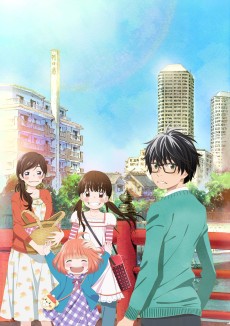 ANIME Drama3-gatsu no Lion
ANIME Drama3-gatsu no Lion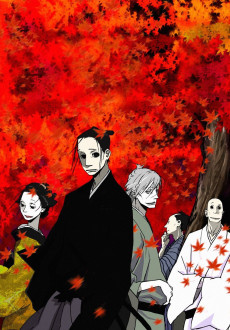 ANIME DramaSaraiya Goyou
ANIME DramaSaraiya Goyou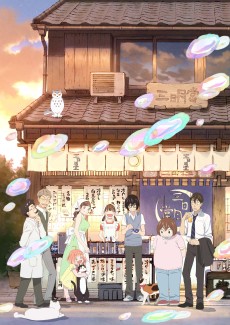 ANIME Drama3-gatsu no Lion 2
ANIME Drama3-gatsu no Lion 2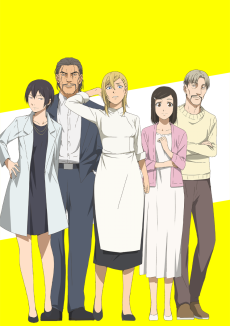 ANIME ComedyNami yo Kiitekure
ANIME ComedyNami yo Kiitekure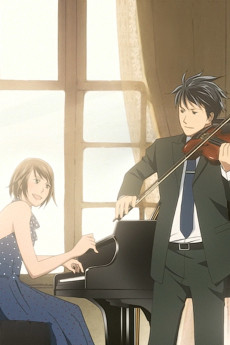 ANIME ComedyNodame Cantabile
ANIME ComedyNodame Cantabile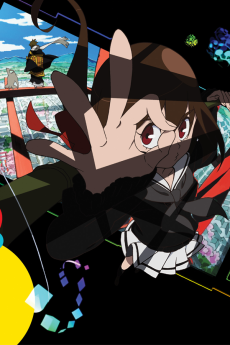 ANIME ActionKyousougiga (TV)
ANIME ActionKyousougiga (TV)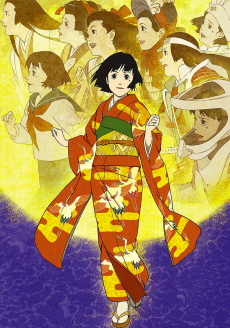 MOVIE DramaSennen Joyuu
MOVIE DramaSennen Joyuu
SCORE
- (4.3/5)
TRAILER
MORE INFO
Ended inMarch 25, 2017
Main Studio Studio DEEN
Favorited by 2,149 Users
Hashtag #落語心中

